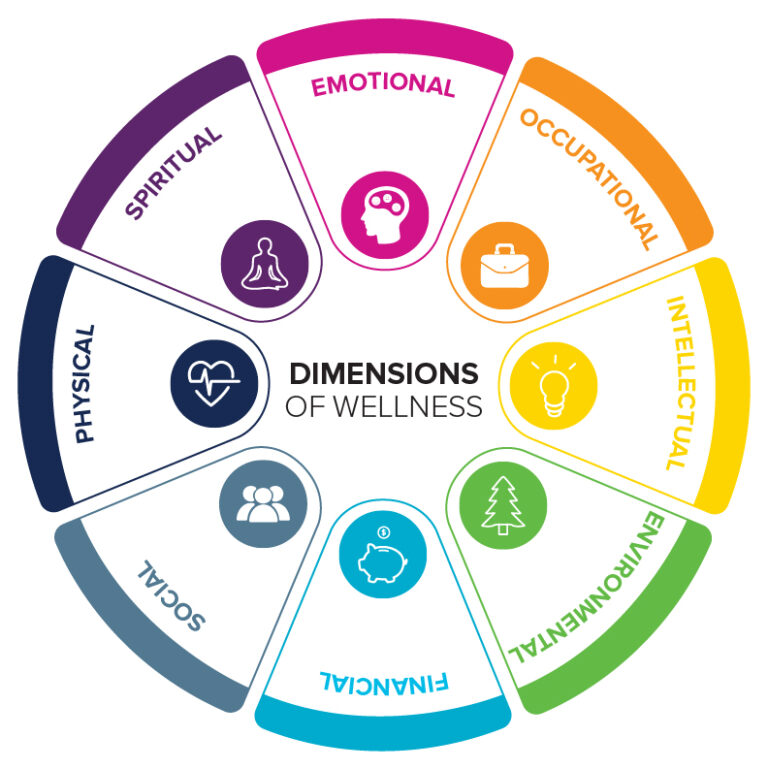Entertainment Agencies: Complete Guide to Talent Management and Representation
Understanding entertainment agencies
An entertainment agency serves as the critical bridge between talented individuals and professional opportunities in the entertainment industry. These specialized businesses represent actors, musicians, comedians, models, writers, directors, and other creative professionals, help them secure work and manage their careers.
At their core, entertainment agencies function as professional representatives who negotiate contracts, seek out opportunities, and handle business matters, so their clients can focus on their creative pursuits. The relationship between talent and agency typically operate on a commission basis, with agencies earn a percentage of their clients’ earnings from deals they help secure.
Types of entertainment agencies
The entertainment agency landscape include several specialized categories, each serve different segments of the industry:
Talent agencies
Talent agencies principally represent performers such as actors, musicians, and comedians. They connect these artists with cast directors, production companies, and other employment opportunities. Major talent agencies like creative artists’ agency( CAA), wWilliam Morrisendeavor ((mwe,)nd united talent agency ( ut()UTA)esent some of the biggest names in entertainment across multiple disciplines.
Modeling agencies
Modeling agencies specialize in represent fashion models for print campaigns, runway shows, and commercial work. These agencies scout for new talent, develop portfolios, and secure bookings with fashion brands, magazines, and advertisers.

Source: melodique.com.au
Literary agencies
Literary agencies represent writers, screenwriters, and authors, help them sell their work to publishers, production companies, and studios. They negotiate publishing deals, option agreements for film and television adaptations, and protect their clients’ intellectual property rights.
Music agencies
Music agencies focus on booking performances, tours, and appearances for musicians and bands. They negotiate with venues, festivals, and event organizers to secure performance opportunities and favorable compensation for their clients.
Core functions of entertainment agencies
Talent representation
The primary function of an entertainment agency is representation. Agents advocate for their clients, pitch them for appropriate opportunities, and work to advance their careers. This representation include marketing talent to cast directors, producers, and other industry decision makers.
Contract negotiation
Entertainment agencies negotiate the terms of employment contracts, include compensation, working conditions, credit placement, and rights. Experienced agents understand industry standards and leverage their knowledge to secure favorable terms for their clients.
These negotiations oftentimes involve complex details like royalty structures, residual payments, merchandise rights, and exclusivity clauses. A skilled agent can importantly increase a performer’s earning potential through effective negotiation.
Career development and management
Beyond secure immediate work, agencies help plan and develop their clients’ long term careers. This strategic guidance might include advise on which role to pursue or decline, manage public image, and identify opportunities for career advancement or diversification.
Many agencies besides will provide career counseling, will help talent will navigate industry challenges and make decisions that will benefit them professionally in the long run.
Network access
One of the virtually valuable assets agencies offer is access to their professional networks. Establish agencies maintain relationships with producers, cast directors, studio executives, and other decision makers across the entertainment industry.
These connections open doors that would differently remain closed to unrepresented talent. The agency’s reputation and relationships can be instrumental in secure auditions and meetings that lead to career define opportunities.
Business models and revenue streams
Commission structure
The standard business model for entertainment agencies centers on commission base representation. Typically, agencies earn 10 20 % of their clients’ gross earnings from projects they help secure. This percentage vary by industry segment, with film and television agents typically charge 10 %, while music book agents might earn 15 20 % of performance fees.
This commission structure align the agency’s interests with those of their clients — the more successful the client become, the more the agency earn. It creates a reciprocally beneficial relationship where both parties aremotivatede to pursue the about lucrative opportunities.
Packaging fees
Some agencies, specially in film and television, earn additional revenue through packaging fees. This practice involve bundle multiple clients (such as writers, directors, and actors )into a single project and charge the production company a fee for this service.
Packaging has been controversial in recent years, with writers’ guilds argue that it create conflicts of interest. Some jurisdictions have implemented regulations limit this practice to ensure agents prioritize their fiduciary duty to individual clients.
Corporate structure
Entertainment agencies range from small boutique operations specialize in niche markets to massive global corporations represent thousands of clients across multiple entertainment sectors. The largest agencies have expanded beyond traditional representation to offer services in brand licensing, sports management, and eventide production financing.
Many major agencies have evolved into entertainment conglomerates through mergers and acquisitions, create powerful entities with influence across multiple media industries. This consolidation haschangede the landscape of talent representation, with a few major players dominate much of the market.
The agency client relationship
Sign with an agency
For aspire entertainers, secure agency representation frequently mark a significant career milestone. The process typically begins with submissions, referrals, or showcase performances that bring talent to an agent’s attention.
If an agent sees commercial potential, they may offer representation through a contract that outline the terms of the professional relationship, include commission rates, exclusivity requirements, and termination conditions. These contracts may be for fix terms or operate on an at will basis depend on the agency and industry standards.
Client responsibilities
While agencies provide valuable services, clients maintain certain responsibilities in the relationship. Talent must remain professionally prepare, attend schedule auditions or meetings, and maintain open communication with their representatives.
Successful client agency relationships require mutual respect and clear communication. The best partnerships function as true collaborations, with both parties work toward share career goals.
Exclusivity and representation
Most entertainment agencies require exclusive representation rights within specific markets or media categories. This exclusivity ensures the agency can confidently promote their client without compete with other representatives.
Nonetheless, it’s common for talent to have different representatives for different aspects of their career. For example, an actor might have one agent for film and television work, another for commercial bookings, and a separate agent for voice over opportunities.
Legal framework and regulations
Licensing requirements
Entertainment agencies operate under various regulatory frameworks depend on their location. In many jurisdictions, talent agents must obtain specific licenses and adhere to regulations design to protect performers from exploitation.
For instance, in California, the talent agency act require agents to be license by the labor commissioner and prohibit certain practices like charge upfront fees to clients. Similar regulations exist in New York and other entertainment hubs.
Guild and union relationships
Entertainment unions and guilds like sag Astra (sScreen Actors GuildaAmericanfederation of television and radio artists ) wgWGA (iWriters Guild of America)nd dga DGAi(ctors guild of ameriAmerica)blish rules govern how agents can represent their members.
These organizations oftentimes require agencies to sign franchise agreements that stipulate acceptable business practices, commission caps, and conflict of interest provisions. Agencies must comply with these agreements to represent union members, who comprise nigh working professionals in film, television, and theater.
The evolving agency landscape
Digital transformation
The digital revolution has transformed how entertainment agencies operate. Online casting platforms, social media, and streaming services havcreatedte new opportunities and challenges for talent representation.
Agencies nowadays help clients navigate digital rights, social media presence, and opportunities in emerge platforms. Many have established dedicated digital departments to capitalize on new revenue streams from online content creation, influencer marketing, and digital distribution.
Diversification of services
Modern entertainment agencies progressively offer services beyond traditional representation. Many provide brand partnership facilitation, production services, and strategic career consulting. This expansion reflect the progressive interconnect nature of entertainment, advertising, and digital media.
Some agencies have eventide launch venture capital divisions to invest in entertainment technology startups, recognize the value of maintain a foothold in emerge media platforms and distribution channels.
Global expansion
As entertainment markets become progressively global, agencies have expanded their international presence. Major agencies maintain offices in entertainment capitalworldwidede, allow them to represent talent across multiple markets and facilitate international productions.

Source: corporateentertainmentagency.com
This globalization has created opportunities forcross-culturall collaborations and open new markets for talent, while besides increase competition in what was formerly a regionally segment industry.
Choose the right entertainment agency
Factors to consider
For talent seek representation, select the right agency involve consider several factors:
-
Agency size and focus:
Boutique agencies may offer more personalized attention, while larger agencies provide broader industry connections. -
Client roster:
An agency’s exist clients indicate their industry relationships and the types of opportunities they can access. -
Track record:
An agency’s history of successful placements and career development for similar talent. -
Agent expertise:
Individual agents’ experience and understanding of specific market segments. -
Communication style:
The frequency and quality of communication between agent and client.
Red flags
Entertainment hopefuls should be wary of certain warning signs when consider agency representation:
-
Upfront fees:
Legitimate agencies earn through commissions, not by charge clients registration or representation fees. -
Guarantee work:
Reputable agents ne’er guarantee employment, as book decisions finally rest with cast directors and producers. -
Require classes or services:
Agencies that pressure clients to purchase photography, training, or other services from affiliated providers oftentimes have conflict interests. -
Lack of transparency:
Agencies should be forthcoming about their commission structure and business practices.
The future of entertainment agencies
The entertainment agency business continues to evolve in response to technological and market changes. Several trends are shape the future of talent representation:
Ai and data analytics
Agencies progressively leverage artificial intelligence and data analytics to identify cast opportunities, predict market trends, and optimize client careers. These technologies help agents make more inform decisions about which project to pursue and how to position their clients in competitive markets.
Creator economy integration
The rise of the creator economy has blurred traditional boundaries between celebrities and content creators. Forward think agencies forthwith represent influencers and digital content creators alongside traditional talent, develop expertise in monetize online platforms and build digital first careers.
Sustainability and ethical representation
Grow awareness of diversity, inclusion, and ethical business practices is reshaped agency priorities. Many agencies nowadays emphasize represent diverse talent and advocate for equitable treatment across the entertainment industry. This shiftreflectst both change social values and recognition of untapped market potential in underrepresented communities.
Conclusion
Entertainment agencies play a vital role in the complex ecosystem of the entertainment industry. They serve as gatekeepers, advocates, and business managers for creative talent, help navigate an industry know for its competitiveness and unpredictability.
For aspire entertainers, understand how agencies function provide valuable insight into an essential component of professional success. While the digital age has created new pathways to audience building, the expertise, connections, and negotiate power that agencies provide remain valuable assets in build sustainable entertainment careers.
As the entertainment landscape will continue to will evolve, agencies that successfully will adapt to will change technologies, business models, and cultural expectations will continue to will thrive as essential partners in the creative process. Their ability to identify talent, create opportunities, and maximize the value of creative work ensure their continue relevance in an industry define by constant change.



